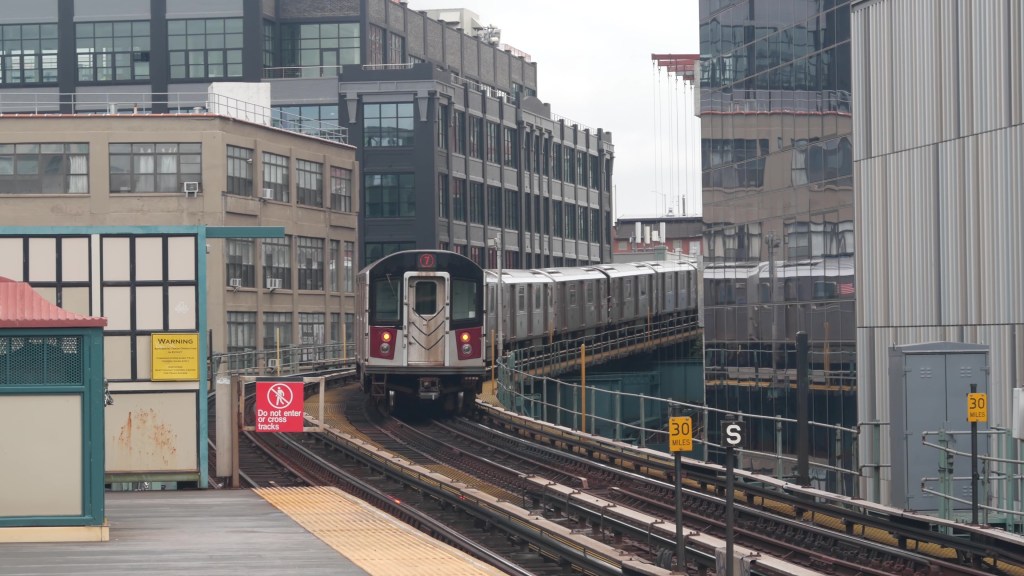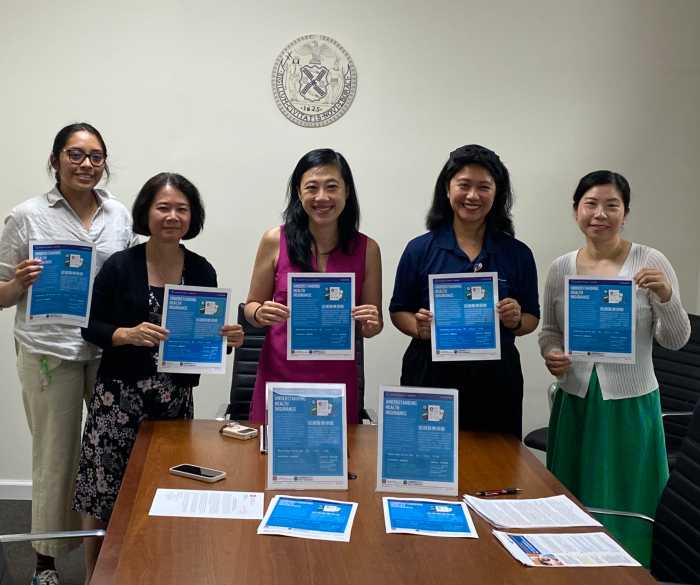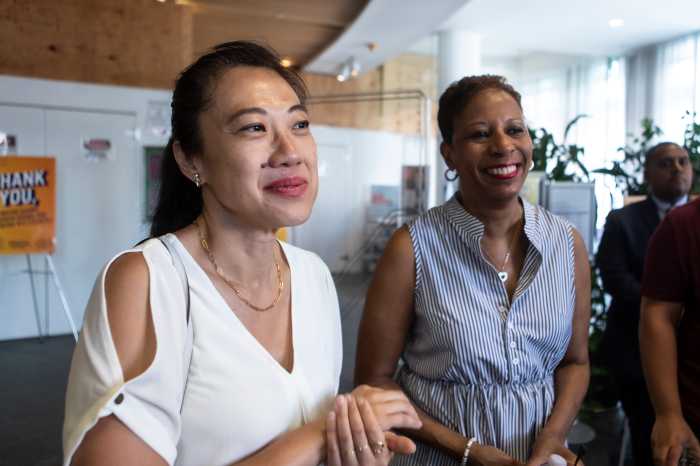By Zach Patberg
“He was used to living in a house with a garden,” Joan Bunche said of her late father, Ralph Bunche, the former United Nations negotiator and lauded academic famous for forging peace in Palestine and supporting civil rights at home.The tree-shadowed neo-Tudor-style house at 115-24 Grosvenor Rd., where Ralph Bunche lived with his family from 1954 until his death in 1971, was recently designated by the city as a landmark in honor of “Dr. Bunche's trailblazing leadership in the United Nations and his remarkable lifetime's accomplishments,” the Landmarks Preservation Commission Chairman Robert Tierney said at last week's designation ceremony.Born Aug. 7, 1904 in Detroit and raised with his two sisters by their grandmother in Los Angeles, the brilliant young African American scaled the academic ladder to Harvard, where he alternated between teaching and pursuing a doctorate in political science.As he made the transition from student life to the professional arena, Bunche focused heavily on the civil rights movement, giving countless speeches on racial injustices, serving on President Roosevelt's Black Cabinet and authoring a 1936 book titled “A World View of Race.”But where he received his enduring fame was during his service with the United Nations, particularly in 1949 when after 11 months of tireless negotiating, the 45-year-old acting UN moderator managed to broker an armistice agreement between Israel and the Arab states.Bunche returned to the United States a hero, welcomed with a ticker-tape parade up Broadway and Los Angeles declaring it Ralph Bunche Day.His daughter Joan said she remembers when her father let her come with him on his business and diplomatic travels throughout Europe and Asia, once giving her the duty of taking notes for him during international meetings with the board of the Rockefeller Foundation.But at home in Kew Gardens, Joan and her sister and brother were mostly sheltered from the issues and problems their father faced, whether it was about cease-fires abroad or racial struggles at home.”We were protected as a family,” Joan said in a phone interview from her home in Manhattan.In 1988, her mother, Ruth Bunche, died in her bedroom of pancreatic cancer. Three years later her children sold the house.Though now occupied by new owners, the landmarked property will continue to be preserved, not only in upkeep but in remembrance of a man who planted the seeds of peace alongside his tomatoes.”May there be freedom, equality and brotherhood among all men,” Bunche said in his Nobel Peace Prize acceptance speech in Oslo in 1950. “May there be, in our time, at long last, a world at peace in which we, the people, may for once begin to make full use of the great good that is in us.”Reach reporter Zach Patberg by e-mail at news@timesledger.com or by phone at 718-229-0300, Ext. 155.

































